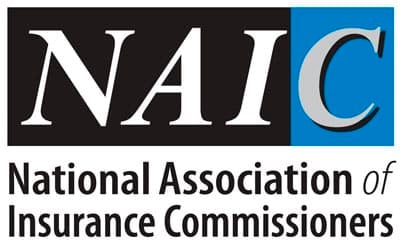 Austin, TX –The chairman of the committee that brought forth the so-called broker bill, and swore to pass it, is now backing away. The efforts of the NAIC's own consumer representatives–and Consumer Watchdog–are paying off. They're literally sending the whole thing back to committee…. likely for a very, very long time! More later, gotta go celebrate.
Austin, TX –The chairman of the committee that brought forth the so-called broker bill, and swore to pass it, is now backing away. The efforts of the NAIC's own consumer representatives–and Consumer Watchdog–are paying off. They're literally sending the whole thing back to committee…. likely for a very, very long time! More later, gotta go celebrate.
Of course, consumers would have preferred that the legislation be swept away for good, but here's this morning's news release, showing why this is a terrific step in the right direction:
Insurance Commissioners Back Away from Bill To Pay Brokers More By Raising Health Premiums
Consumer Watchdog Cheers Decision to Probe Broker Pay Structure, Acknowledgement that Consumers Protection Needed
Austin, TX — State insurance commissioners made an unexpected turnabout late Sunday, ending a drive toward support for a special-interest bill that would raise health insurance premiums for consumers. A key committee voted instead to examine in depth the bill sought by insurance brokers and health insurance companies.
Consumer Watchdog, which had sharply criticized the National Association of Insurance Commissioners for its apparent embrace of legislation written by the insurance brokers’ lobby, cheered the turnabout. Though virtually identical legislation was recently introduced by Reps. Mike Rogers of Michigan and John Barrow of Alabama, it faces a tougher fight without the NAIC endorsement.
“Without the united backing of the state insurance commissioners, the legislation’s special-interest authorship is laid bare and its aim—to protect large percentage commissions on health insurance sales—is easier to detect,” said Judy Dugan, research director for the nonprofit, nonpartisan Consumer Watchdog. “We applaud the consumer-focused state commissioners who made their doubts known. They put the brakes on an industry pay bonus from the pockets of consumers and taxpayers.”
The brokers’ measure, misleadingly named the “Access to Professional Insurance Advisors Act of 2011,” would change the federal health reform law to let insurance companies exclude broker commissions from their administrative costs when calculating how much they spend on actual health care.
Key points:
- Current law requires insurance companies to pay consumer rebates if they spend less than 80% to 85% of premium dollars on health care.
- The legislation, by excluding a chief administrative cost from the administration vs. health care calculation, would effectively take the rebate money from consumers and pay it to brokers and the insurance companies.
- Investment analysts calculate that under the current law, health insurers would pay up to $1.5 billion in rebates or reduce premiums to avoid rebates. That incentive wouild disappear under the broker legislation.
- Costs to taxpayers would also rise, as rising premiums caused more people to lose private insurance. Costs would be higher in the state insurance Exchanges that will offer subsidized coverage as of 2014.
Florida Insurance Commissioner Kevin McCarty, the chief champion of the brokers’ legislation, acknowledged growing opposition Sunday and quit urging a vote of all 50 state commissioners. McCarty is separately trying to get his state’s insurance companies exempted from existing federal cost-control regulation.
A substitute measure asks an existing and experienced NAIC task force on health reform to probe brokers’ pay in recent years, the incentives that insurance companies use to gain only the healthiest applicants, possible alternatives to the bill and “any other matter” that comes to its attention. While the brokers are still saying they hope the NAIC will swiftly study the issue and unanimously support their legislation, Consumer Watchdog said the study will show why brokers can’t be satisfied without raising premiums, harming consumers and demolishing the medical care spending rules meant to force the industry to cut costs and operate more efficiently.
“The NAIC task forces did a thorough, open and expert job of developing regulations for the ‘medical loss ratio’ rule,” said Dugan. “We expect the same public access and open debate as they examine broker compensation.”
Key opposition to the special interest legislation included commissioners from populous California and Illinois, as well as commissioners from Oregon, Washington and Connecticut.
Sens. David Rockefeller and Al Franken sent letters of opposition to the NAIC that foreshadowed a tough Senate fight if the bill passes the House.
Consumer representatives from NAIC itself, as well as Consumer Watchdog, testified against the legislation at the meeting. They provided information about the pay incentives that insurance companies use to influence brokers’ advice to clients.
See Consumer Watchdog’s formal comments in opposition to the legislation at http://www.consumerwatchdog.org/resources/naiccomment3-21-11.pdf
A recent Consumer Watchdog analysis found that a majority of state insurance commissioners either came from the broker or insurance industries, or were elected with substantial industry contributions. Six recent past presidents took jobs in the industry, including two chief lobbyist positions in Washington.
See the analysis at http://www.consumerwatchdog.org/newsrelease/majority-state-insurance-regulators-charged-implementing-federal-health-reform-have-ties
– 30 –
Consumer Watchdog is a nonpartisan consumer advocacy organization with offices in Washington, D.C. and Santa Monica, CA. Find us on the web at: http://www.ConsumerWatchdog.org











